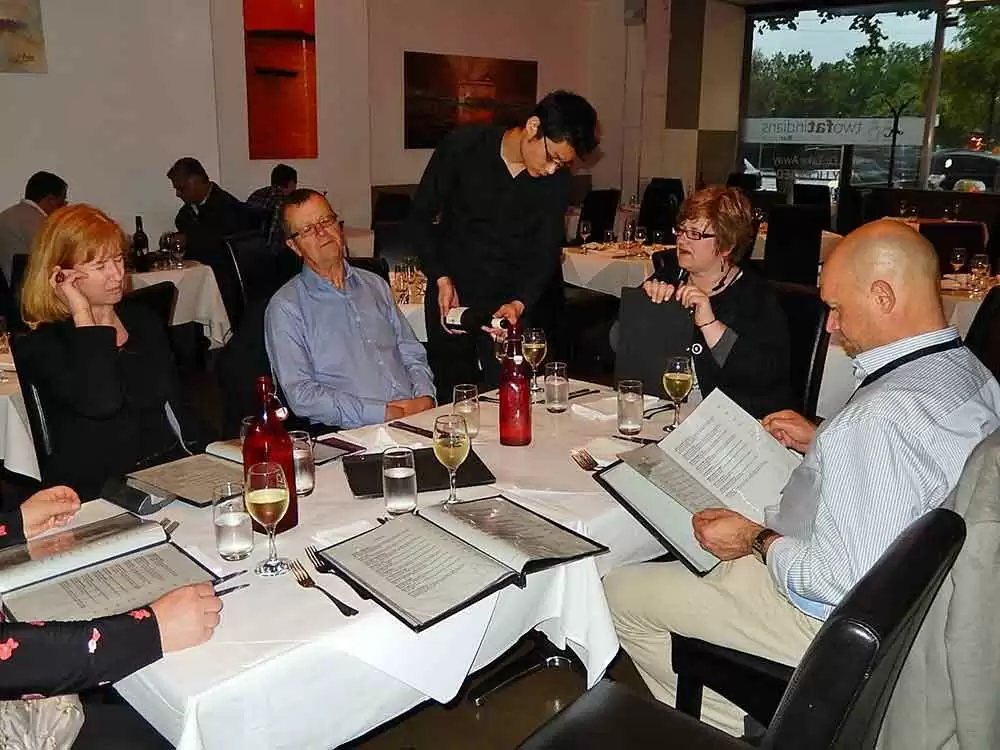
Celiac.com 10/30/2018 - Products with “gluten-free” were unknown just 20 years ago. Now, driven by new labeling standards and demand that far exceeds those on medical diets, the market for gluten-free foods is expected to hit $2.34 billion in sales by 2019. That’s more than double the 2014 level. How has the influx of new gluten-free products in the last few years changed the experience of people with celiac disease?
A team of researchers recently set out to investigate how the recent proliferation of the gluten‐free industry has affected individuals living with celiac disease, with a primary focus on their social lives and relationships. The research team included J. A. King, G. G. Kaplan, and J. Godley. They are variously affiliated with the Department of Sociology, Faculty of Arts, University of Calgary, Calgary, Alberta, Canada, and the O’Brien Institute for Public Health, University of Calgary, Calgary, Alberta, Canada.
Celiac.com Sponsor (A12):
The team employed interpretive phenomenology for study design and analysis. Team members held semi‐structured interviews with 17 adults with clinically diagnosed celiac disease in Calgary, Alberta. They recorded the interviews and transcribed them for analysis.
These 17 Canadians living with celiac disease reported that they perceive the growth of the gluten‐free industry as a "double‐edged sword." Although they are grateful for more readily available, more palatable gluten‐free options, they are increasingly faced with misunderstandings about the severity of celiac disease as a perceived result of many non-celiac disease individuals subscribing to the gluten‐free diet.
Participants also felt they may be perceived or even perceived themselves differently, such as "high maintenance," etc. To help mitigate these social ramifications of following the gluten‐free diet, participants utilized various strategies. According to the study’s authors, simply telling celiac patients to adopt a gluten‐free diet ignores the regular challenges faced by those patients.
The authors of the report are calling for doctors to consider the indirect burdens for celiac patients who must adopt a gluten-free diet when making their recommendations. But how? The report says nothing about what exactly doctors are supposed consider, or what they should tell patients about the challenges of a gluten-free diet. People with celiac disease probably do need more information up front as they begin to follow a gluten-free diet, but clearly far more input and study are needed.
This study tells us that seventeen people in Alberta, Canada say that being gluten-free by medical necessity is both easier and more challenging than it was in the past. That it was both more manageable, but also more stressful, because gluten-free fad dieters are confusing everything. What are we to make of this?
Talking informally with 17 celiac patients and writing up the results may not rise to the level of a solid study, and their input doesn’t really tell us much about how to improve their situation. Also, blaming the popularity of the gluten-free diet as a cause of confusion or stress in people with celiac disease could be an overreaction.
Remember, ten or twenty years ago when most people had nearly zero awareness of celiac disease or the gluten-free diet? That included doctors who were trying to diagnose it. To have these inconvenient misunderstandings, people must first have some idea that celiac disease exists, and that a gluten-free diet is part of it. Is it possible that, as annoying as such misunderstandings may be, they represent progress, however incremental?
Perhaps the annoyances are real, perhaps they are perceived. Perhaps they are a reflection of slowly rising awareness levels. But the study doesn’t tell us any of these important details.
Again, there’s little question that people with celiac disease need more information up front as they begin to follow a gluten-free diet, but clearly more input and study is needed so that we can come up with an accurate picture of the challenges and provide the best ways to meet them.
What’s your experience of the rapidly changing gluten-free landscape?
Read more at: JOURNAL OF HUMAN NUTRITION & DIETETICS. First published: 02 October 2018 https://doi.org/10.1111/jhn.12597











Recommended Comments
Create an account or sign in to comment
You need to be a member in order to leave a comment
Create an account
Sign up for a new account in our community. It's easy!
Register a new accountSign in
Already have an account? Sign in here.
Sign In Now